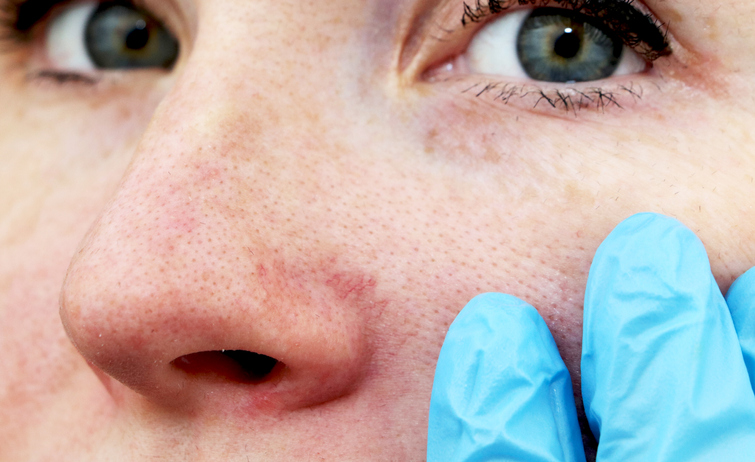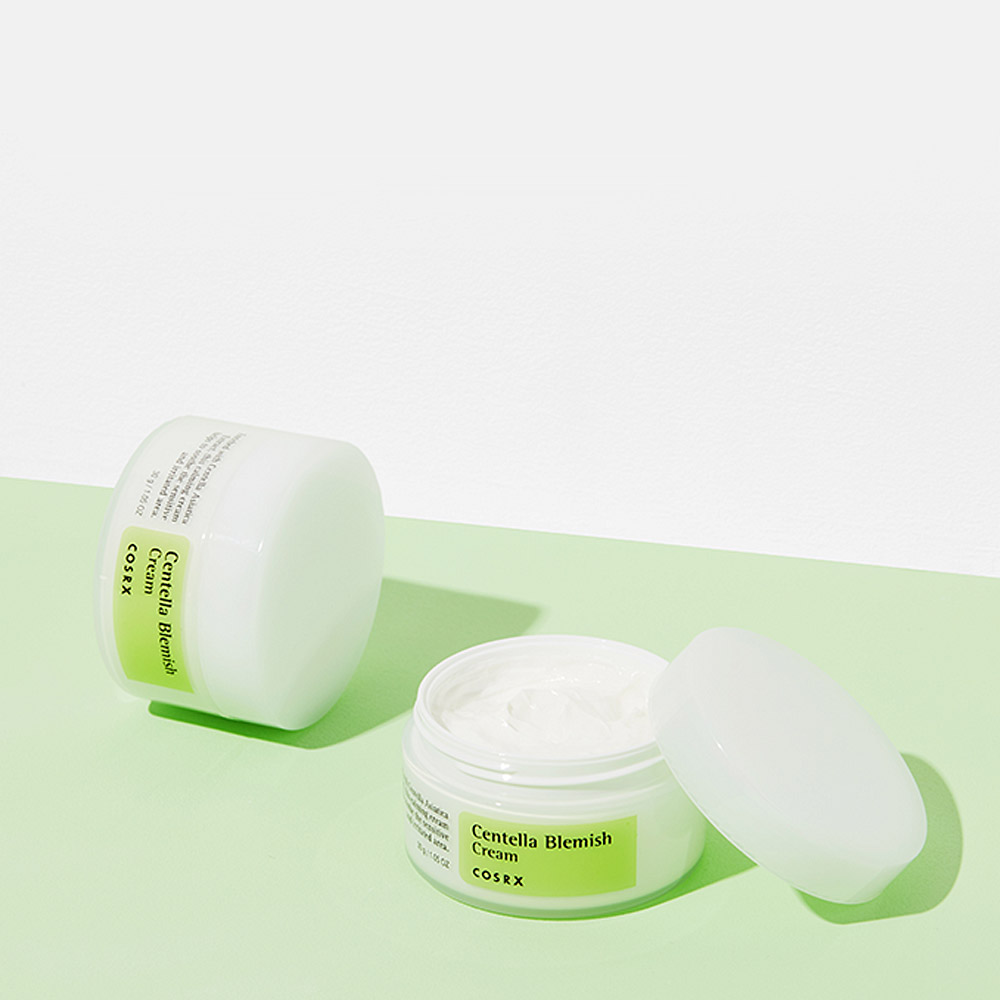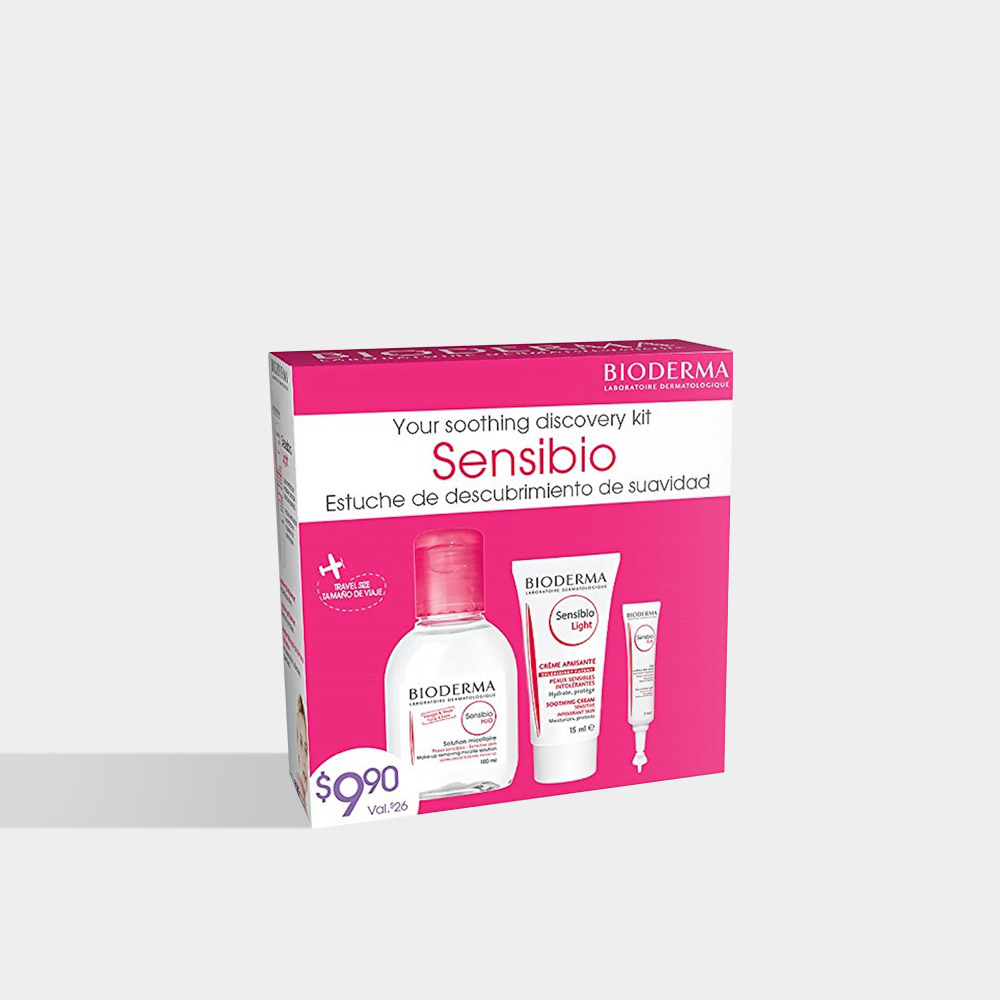Dry? Sensitive? Oily? These Medical Skin Care Pros Share How To Determine And Treat Your Skin Type
If you’ve never had a skincare routine, or if your skin has changed as you’ve aged, you’ll get better results by identifying your skin type before you make a product purchase.

According to the American Academy of Dermatology, there are five specific types: dry, normal, combination, oily, and sensitive skin. Here are some simple questions to help you determine what you’re dealing with:
- Is your skin itchy, rough, or flaky? If so, your skin type is dry.
- Does your skin look greasy or oily allover? If the answer’s yes, you have oily skin.
- Are there areas on your face that are oily, like your T-zone, as well as dry patches? Guess what? You have combination skin.
- Do skincare products sting your skin or make it feel like someone set it on fire? If so, your skin is sensitive.
- If you didn’t answer yes to any of the previous questions, and your skin is clear and pretty happy with itself – lucky you – you’ve got normal skin.

Of all the different skin types, Melissa Haloossim, Board Certified Nurse Practitioner and Clinical Director/Co-Founder of Skin Thesis® says, “Combination skin confuses people the most because they have oily areas surrounded by dryness. They may also experience small pustules as well as acne.”
Beautytap Advisors (aestheticians, facialists, makeup artists, and beauty professionals) recommend this cream for acne.

Skin Types Aren’t Set In Stone
Despite identifying your skin type in your teens, 20s, or beyond, environmental factors and aging can change it over time. Glynis Ablon, M.D., F.A.A.D., director at Ablon Skin Institute & Research Center as well as Associate Clinical Professor at UCLA, says that there is absolutely a correlation between skin type, weather, and aging. “Individuals with oily skin in their youth often have dry skin when they hit menopause, or even before, which is why I like to evaluate someone’s skin each decade of their life.” And even if you’ve had dry skin your entire life, Haloossim says, “Hormonal changes later in life often imbalance the skin’s pH level, resulting in an over-production of oil in some places with dry skin in others.”

Consider Special Conditions As Well As Your Skin Type
No matter what skin type you’re born with, you can also have a variety of skin conditions and concerns. Dehydration, rosacea, and reactivity happen regardless of skin type. For instance, many people think that dry skin and dehydrated skin are the same thing. Not according to Dr. Ablon. “Dry skin means that an individual doesn't have extremely active sebaceous glands. Dehydrated skin is usually due to nutrition, but weather and hormones can play a big factor as well.”
Redness and rosacea are entirely different conditions, too. “Rosacea can appear first as redness or so it is important to see your dermatologist to determine the cause and most effective therapy.”
Skin sensitivity and reactivity are also independent of one another. According to Haloossim, individuals who have sensitive skin “may not be able to use certain products or multiple products all at once.” Reactions, on the other hand, generally occur as a response to a specific ingredient or environmental factor, such as heat, humidity, or pollution.
Beautytap Advisors (aestheticians, facialists, makeup artists, and beauty professionals) recommend this discovery set for sensitive skin.

Incorporate New Products Over Time, Not All At Once
Once you get your new products home, you may be tempted to throw caution to the wind and try everything simultaneously, but don’t. Treat new skincare products like a new relationship. Take things slow and test each addition on its own in front of your ear if you tend to break out.
Dr. Ablon recommends that people “only introduce one or two products at a time” to see how their skin reacts. She likes simple routines and doesn’t feel that more products are necessarily better. “For instance, some people don’t need a moisturizer but, rather, just a moisturizing sunscreen, so they don't break out from an extra product.” Haloossim also recommends that new products be incorporated over time. “Begin by using a new product every three days then build up to using it every other day and then daily” if you aren’t experiencing any adverse effects.
Isolating products will also help you spot trouble quicker. For example, some products that treat acne and rosacea, like azelaic acid, cause purging – which is not the same as a regular breakout or a reaction. “Some products cause underlying bacteria to surface,” Haloosim says, so it’s important to discuss changes in your skin’s condition with your dermatologist, especially if you’re prone to acne.
Learn When Not To Go It Alone
With “Dr. Internet” readily available in time of need, you may be tempted to self-diagnose and DIY your skincare woes. “If your skin is doing well and your routine is simple,” Dr. Ablon says, “using sunscreen and an active antiaging product is fine. But if over-the-counter benzoyl peroxide-based cleansers, like Panoxyl, and/or over the counter acne treatments, such as Differin, are not clearing your acne, it's time to see your dermatologist.”
Loading...